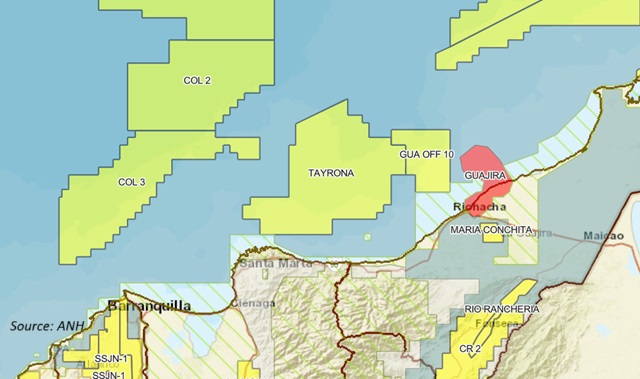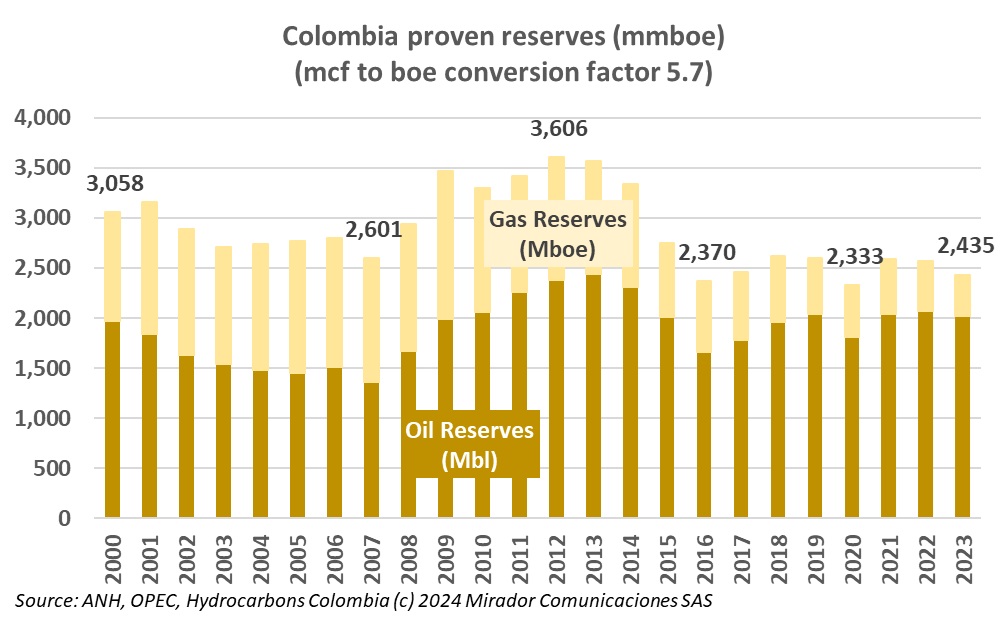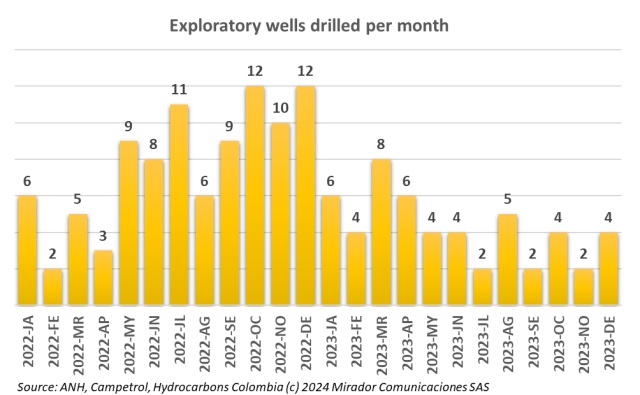Global oil majors are making record investments in the search for new oil reserves in Latin America.

Ecopetrol (NYSE: EC) and Petrobras (NYSE: PBR) announced the initiation of drilling for the Uchuva-2 well in the Tayrona Block, located in the Caribbean waters of Colombia.
After the results of the exploratory gas well drilling in the Caribbean offshore, Orca Norte 1, Ecopetrol decided to cancel the pipeline project that was planned to connect this deposit with the existing pipeline in the Chuchupa field, generating concerns in the country.

In December 2014, Ecopetrol announced its first deep-water hydrocarbon (natural gas) discovery in the Caribbean Sea off the coast of Colombia at the Orca-1 well, located 40 kilometers north of La Guajira.

Seven graphs that illustrate the country’s shrinking resources.
Orlando Velandia, the President of Colombia’s National Hydrocarbons Agency (ANH), highlighted the country’s ongoing efforts to strengthen the oil and gas sector.
Ecopetrol (NYSE: EC) is gearing up for a new venture to further explore the natural gas potential in the Caribbean Sea.

Campetrol, with information from the National Hydrocarbons Agency (ANH), reported the drilling of exploratory and development wells during 2023.
Colombian state-owned oil company Ecopetrol (NYSE: EC) shared the drilling results of the Orca Norte-1 well in the Tayrona Block, aiming to uncover additional natural gas reserves in the deep waters of the Caribbean Sea.
Campetrol’s latest drill report has unveiled a significant drop-in oil rig activity, hitting its lowest level since June 2021. Industry experts responded to these findings, expressing concerns about potential economic implications if this trend persists.